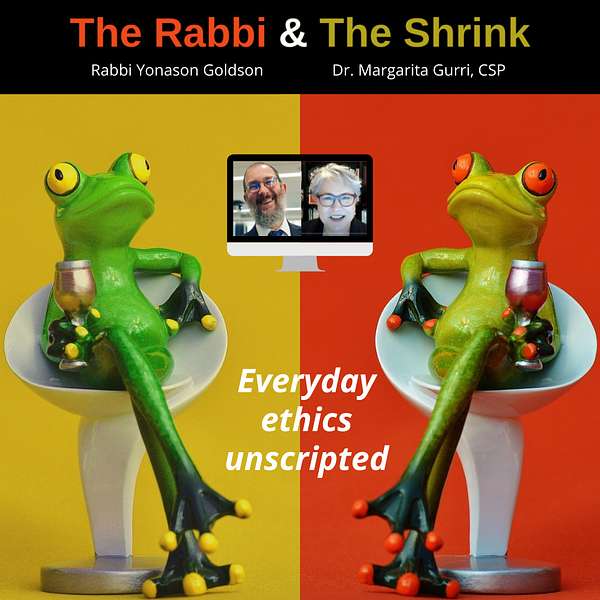
The Rabbi and The Shrink
What do you get when you cross an Orthodox hitchhiking rabbi and a Catholic Cuban psychologist? An award-winning podcast with unpredictable conversations about everyday ethics and the secrets for successful relationships in business, family, and community.
Contact us with questions and comments: http://therabbiandtheshrink.com/ Podcast@TheRabbiandTheShrink.com
The Rabbi and The Shrink
Archive Episode #29: Practical Philosophy Prevents Persistent Problems w/ Cristina DiGiacomo
Do you often wonder why people aren’t listening to you?
Can philosophy provide practical solutions to modern problems?
Why are we challenged to bring together abstract concepts with down-to-earth issues?
These and other persistent questions are answered when practical philosopher and moral alchemist Cristina DiGiacomo joins the Rabbi and the Shrink
https://www.linkedin.com/in/cristinadigiacomo/
1:00 How can philosophy provide practical solutions to modern problems?
Why are we challenged to bring together abstract concepts with down-to-earth issues?
We are philosophers if we pursue authentic wisdoms
7:30 The handshake and the golden rule are examples of accessible philosophy
Philosophy is the love of wisdom and the way we look at life
Asking questions makes us philosophers
Philosophy is a matter of outlook and perspective
Our attitudes shape our perceptions
12:00 What are the benefits of asking questions?
You stop multitasking
Triggers serotonin
Questions lead to intentions which lead to outcomes
If we aren’t open to new insights, we can’t be ethical
17:00 When we know that we don’t know, we open ourselves up to possibilities
Too many people don’t recognize the relevance of ethics in their lives
19:30 When we face problems, ask where did we go wrong?
It’s easier to blame individuals that to question the system
The benefit of 12-step recovery programs
Mistakes help us become stronger and do better
24:30 Why aren’t people listening to me?
Are we connecting perception with reality?
What do the classical philosophers say to address our problems?
28:00 Asking questions preempts conflict and promotes self-reflection
Openness drives progress
The danger and opportunity of “yeah, but.”
32:00 The word of the day: epistemology
How we know what we know
If arrive at the correct facts through faulty reasoning we may be setting ourselves up for future errors
We may need data now, but reason prepares us for the future
36:00 “The sage acts without pressure from within or without.”
The Hebrew word aliza can mean to relieve pressure or to apply pressure
Different situations call for different strategies to move us forward
What is one question you can ask yourself about your philosophy?
When we live from fear rather than from curiosity, we are setting ourselves up for failure.